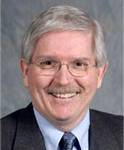 Ryan W. Booth, a Ph.D. student in history at Washington State University and member of the Upper Skagit tribe, gave his talk “They Are Always at the Front” Tuesday night at Wolff Auditorium, discussing the contributions of Native American soldiers during World War I.
Ryan W. Booth, a Ph.D. student in history at Washington State University and member of the Upper Skagit tribe, gave his talk “They Are Always at the Front” Tuesday night at Wolff Auditorium, discussing the contributions of Native American soldiers during World War I.
Despite assimilation being well-studied, he explained that martial race theory, which says that certain races of men are more war-like than others, has only been recently discussed. He added that both of these concepts help explain some of the motivations behind Native men volunteering for service during the war.
Using anecdotes, Booth explained how the spirit of most Native soldiers was of valiance and bravery, and that the front represented the greatest chance of death, but also the greatest freedom away from the strictures of Army life.
Through the martial race theory, World War I military sought to “identify and exploit” these groups to fight for their side, but the same armies supported efforts to assimilate these indigenous soldiers into Euro-American culture.
“The odd nature of attitudes towards Native Americans in the World War I period is the two-faced aspect of it,” Booth said. “On the one hand, Natives represented a fierce fighting force backed up by millennia of ancient warrior culture. On the other hand, that same culture was under assault at home as the assimilation projects, such as boarding schools, attempted to eradicate all remnants of that indigenous culture.”
Find out more
Gonzaga Bulletin


 Ryan W. Booth, a Ph.D. student in history at Washington State University and member of the Upper Skagit tribe, gave his talk “They Are Always at the Front” Tuesday night at Wolff Auditorium, discussing the contributions of Native American soldiers during World War I.
Ryan W. Booth, a Ph.D. student in history at Washington State University and member of the Upper Skagit tribe, gave his talk “They Are Always at the Front” Tuesday night at Wolff Auditorium, discussing the contributions of Native American soldiers during World War I.